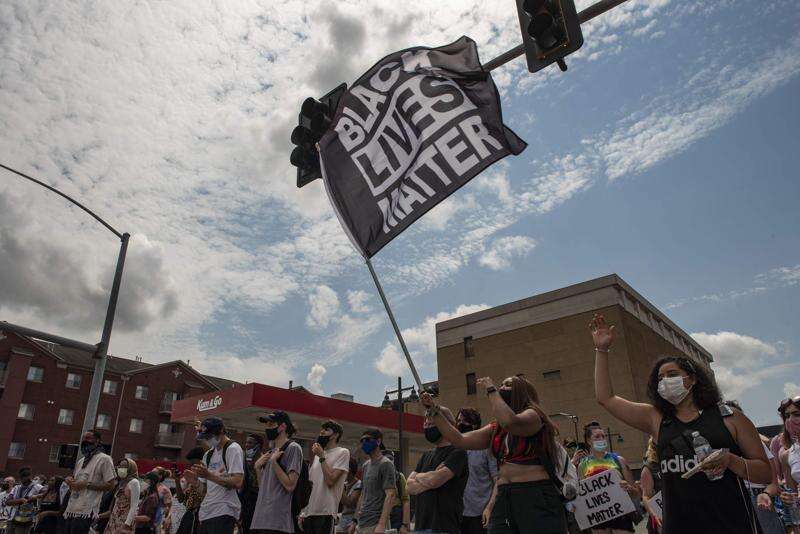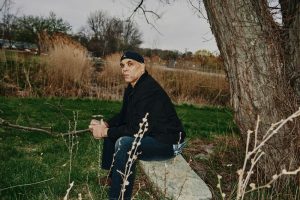Proposal, which will go before city council, costs more but includes more community input
IOWA CITY — Months after the Iowa City Council denied its first facilitator proposal, the city’s Truth and Reconciliation Commission is ready to present another proposal to the council.
The commission voted 6-0 Thursday night to approve an updated agreement with the same out-of-state facilitator but this time would have the Kearns & West consultants working with local partners.
The new proposal costs nearly three times as much but involves a longer timeline, community events and a larger team. Members of the Iowa City Council last year raised concerns about the lack of local involvement in the first proposal.
The proposal will need council approval before it can move forward and could come before the council as soon as May 17, its next meeting.
The $584,700 proposal lists all the options available and can be decreased as needed, said Larry Schooler, a senior director with Kearns & West. The intent is to figure out what will work for the community and the commission as work begins.
While questions were raised about the increased budget, commission members stressed the importance of starting the work they were tasked with nearly two years ago.
“We need to remember that this is not just about the money that gets spent now. This is about the effect that this has for generations to come,” TRC Chairman Mohamed Traore said.
“Let’s remember what the actual goal is — healing. What is the dollar value that you all put on that?”
Commission mission
The Iowa City Council created the nine-member commission in 2020 in the wake of Black Lives Matter protests following the slaying of George Floyd by Minneapolis police.
The commission’s mission is to gather testimony about racial injustices, foster ways for people to share their stories and encourage direct conversations in the community.
The council also committed $1 million to social justice and racial equity efforts, including the work of the commission.
The council last year, on Sept. 7, approved a nearly $200,000 budget for the panel, but on Sept. 21 rejected hiring an out-of-state facilitator, in a 4-3 vote, to help the commission with its work.
Proposal details
The facilitator proposal approved by TRC has Kearns & West collaborating with local partners, including Mediation Services of Eastern Iowa, Banjo Knits Empowerment, Think Peace, and Astig Planning. Three Native Americans from Iowa also will be involved.
The addition of local partners is meant to meet the needs of the Iowa City community and engage residents in a meaningful way, said Schooler, the Kearns & West senior director.
Kearns & West has offices in Texas, South Carolina, California, Colorado, Oregon and Washington, D.C. Its staff has assisted reconciliation commissions in other states and countries.
The consultants, working with local partners, can help the commission carry out its vision, provide expertise, help with conflict resolution and elevate community voices, Schooler said.
“We have a team that very much wants to see their hometown and the region thrive through the work of the TRC and have the kind of lived experience and sustained connections across the city that we think really are an asset,” Schooler said.
Community events
Angie Jordan, founder of Banjo Knits and president of the South District Neighborhood Association, said she was excited about interacting with the community and helping with the facilitation process.
“I feel like as a local person that is already doing the work, this is a space where we can do it together as a team and bring more entities into the space,” Jordan said.
Part of the work, Schooler said, will be holding events people feel comfortable attending. This can include large in-person events and smaller in-person or virtual events. There is also the opportunity to collaborate with the South District’s upcoming Diversity Market.
Hearing feedback from residents after each event will be top of mind, Schooler added.
Budget
The $584,700 budget would cover 12 months of work.
Schooler acknowledged it is a “significant increase” from the previous proposal — close to $200,000 — but that it’s a better way to meet the community needs.
“When we initially proposed, … we were chiefly thinking about just in-meeting facilitation and not the level of direct, grassroots engagement across all communities that we believe that we can have now that we’ve assembled this incredibly rich team,” Schooler said.
The updated budget is currently broken down into five categories:
- Development of strategic plan and work plan, research, project management: $143,362
- Collaborative and community informed design of fact-finding, truth-telling, reconciliation process: $74,850
- Fact-finding and truth-telling public process: $161,467
- TRC meetings: $181,098
- Report compilation: $23,925
Council member Laura Bergus said she was initially shocked to see the cost increase but after hearing details, Bergus said it’s reasonable and prudent.
“If we think of the size of what we’re tackling and trying to undertake with this, it makes very good sense to me,” Bergus said at Thursday night’s TRC meeting.
Comments: (319) 339-3155; izabela.zaluska@thegazette.com




